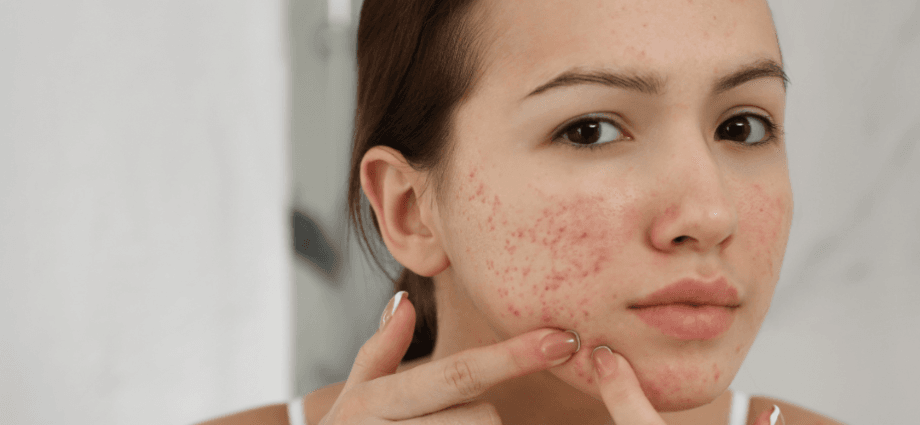Good hydration is essential for your skin’s health. Without it, the skin can appear dull, dry, and lifeless. Hydration is not just about drinking water, but also about keeping your skin well-moisturized from the inside out. This article explores the relationship between hydration and healthy, glowing skin, providing practical tips for maintaining the right moisture levels for your skin’s health.
Dehydrated Skin vs. Well-Hydrated Skin
Dehydrated skin tends to look dry, flaky, and rough, and can also feel tight or sensitive. On the other hand, hydrated skin looks smooth, soft, and radiant. Hydration boosts skin’s ability to hold moisture, which helps it stay youthful and firm. When your skin lacks water, it loses its healthy, glowing appearance and starts showing signs of damage, such as fine lines and wrinkles.
Top Benefits of Staying Hydrated for Glowing Skin
Maintaining Elasticity and Reducing Wrinkles
Hydration is a crucial factor in maintaining your skin’s elasticity. Well-hydrated skin is more resilient and less prone to sagging or forming wrinkles. Water helps the skin maintain a plump and smooth appearance, making fine lines less noticeable. When the skin is dehydrated, it loses this elasticity and begins to appear older than it is.
- Hydrated skin stays firm and smooth.
- Water helps the skin bounce back from tension and stress.
- Hydrated skin appears youthful and glowing.
Preventing Acne and Breakouts

Many people don’t realize that dehydration can contribute to acne. When the skin is dehydrated, it produces excess oil to compensate for the lack of moisture, which can lead to clogged pores and acne. Staying hydrated helps balance your skin’s oil production and keeps your pores clean, reducing the likelihood of breakouts.
- Hydrated skin regulates oil production.
- Prevents clogged pores and acne.
- Helps keep skin clear and fresh.
Promoting a Healthy, Radiant Glow
The most visible benefit of hydration is the healthy, radiant glow it gives to the skin. When the skin is well-hydrated, it looks dewy and fresh. Hydrated skin reflects light better, giving it that beautiful glow everyone craves. Lack of water, on the other hand, can make your skin look dull and lackluster.
- Hydrated skin appears glowing and fresh.
- A healthy glow can make you look younger.
- Gives your skin a smooth, even tone.
Hydration Tips for Healthy Skin
Drink Enough Water Throughout the Day

One of the most important tips for healthy skin is to drink enough water. The general recommendation is to drink at least 8 glasses (about 2 liters) of water per day. However, your specific needs may vary based on factors such as age, physical activity, and climate. Hydration needs are higher in hot weather, or if you’re active and sweat more often. Keeping a water bottle with you throughout the day can remind you to stay hydrated.
- Drink water regularly throughout the day.
- Aim for at least 8 cups of water daily.
- Adjust your intake based on activity levels and climate.
Use Moisturizers and Hydrating Skincare Products
While drinking water is vital, moisturizing your skin with hydrating products is also essential. Look for moisturizers that contain ingredients like hyaluronic acid, glycerin, and ceramides, which help lock moisture into the skin. These ingredients can trap water in your skin, keeping it hydrated for longer periods.
- Look for moisturizers with hyaluronic acid.
- Choose creams that contain glycerin and ceramides.
- Use hydrating serums for an extra boost of moisture.
Watch Your Diet for Skin-Friendly Hydration
A balanced diet rich in hydrating foods can also support skin health. Foods with high water content, such as cucumbers, watermelon, and oranges, can help hydrate your skin from the inside out. Include foods that are rich in antioxidants, vitamins, and minerals to promote a glowing complexion.
- Eat water-rich foods like watermelon, cucumbers, and oranges.
- Include omega-3 rich foods like salmon for skin health.
- Consume foods high in vitamins C and E for a radiant glow.
Common Mistakes to Avoid When Trying to Hydrate Your Skin
Overuse of Harsh Skincare Products
Harsh skincare products can strip moisture from your skin, leading to dryness and irritation. Products with strong chemicals, fragrances, or alcohol can damage your skin’s moisture barrier. Stick to gentle, hydrating products, and avoid over-exfoliating your skin, as this can lead to further dehydration.
- Avoid products with alcohol or strong fragrances.
- Choose gentle, hydrating cleansers.
- Don’t over-exfoliate, as it can damage the skin’s barrier.
Ignoring Skin Hydration During the Winter
Winter can be especially harsh on your skin. The cold weather and low humidity can cause the skin to lose moisture quickly. It’s important to adjust your skincare routine during the colder months by using heavier creams and investing in a humidifier to keep the air around you moist. Wearing scarves or gloves to protect your skin from wind exposure is also a good idea.
- Use thicker moisturizers in winter.
- Invest in a humidifier for your home.
- Protect your skin from cold winds with scarves and gloves.
Relying Too Much on Caffeine and Alcohol
While caffeine and alcohol may seem refreshing, they are diuretics, meaning they can cause your body to lose water. Consuming too much caffeine or alcohol can leave you feeling dehydrated, which can negatively affect your skin. Limit your intake of these beverages and balance them with plenty of water.
- Limit alcohol and caffeine consumption.
- Drink water alongside caffeine or alcohol.
- Try herbal teas or water-based beverages instead.
The Connection Between Hydration and Overall Health
Hydration Improves Blood Circulation to the Skin
When you’re properly hydrated, your blood circulation improves, which in turn enhances the delivery of oxygen and nutrients to your skin. Good circulation helps maintain healthy skin cells and promotes healing and regeneration. When blood flow is slow or reduced, your skin can appear dull and unhealthy.
- Hydration boosts blood circulation.
- Healthy circulation improves the delivery of oxygen and nutrients.
- Good circulation contributes to glowing, healthy skin.
Skin as a Reflection of Your Internal Health
Your skin often acts as a mirror to your overall health. When your body is well-hydrated, your skin reflects that vitality. On the other hand, dehydration can cause your skin to look tired, dull, and lifeless. Staying hydrated helps prevent dryness, blemishes, and uneven skin tone, making your skin appear healthier.
- Well-hydrated skin reflects good overall health.
- Dehydrated skin can show signs of fatigue and dryness.
- Hydration keeps your skin smooth and even-toned.
Staying Hydrated for Energy and Vitality
Hydration isn’t just good for your skin – it also affects your overall energy levels and vitality. When your body is hydrated, you feel more energized, focused, and healthy. This increased energy helps maintain a healthy complexion, as your body works more efficiently to repair skin and fight off damage.
- Hydration boosts overall energy levels.
- Feeling energetic helps support healthy skin.
- Drink enough water to stay hydrated and energized.
Conclusion
Hydration is one of the most important factors for achieving glowing, healthy skin. It supports the function of skin cells, improves elasticity, and keeps the skin smooth and radiant. By drinking enough water, using hydrating skincare products, and making mindful dietary choices, you can nourish your skin from the inside out. Avoid common mistakes like using harsh skincare products or ignoring hydration in winter, and make hydration a part of your daily routine for glowing, youthful skin.
